- Home
- Mike Lupica
The Only Game Page 6
The Only Game Read online
Page 6
They were good, Jack thought, not just Cassie. Not that he would tell any of them that, because he didn’t want them to think he was surprised because they were girls.
He wasn’t just impressed by how well they were fielding, but by how much they all seemed to enjoy being out here. The same as he enjoyed being out here.
Jack knew that coaching wasn’t the same as playing, wasn’t the same and wasn’t as good. Nothing was better than being a real player. But he had to admit, this felt pretty great.
He told himself it didn’t count as playing, it was more about being a friend to Cassie, doing this because a friend had asked him to. He wasn’t breaking any rules he’d set for himself by doing that.
After they finished with fielding, in both the outfield and infield, Mr. Bennett told everybody to get a quick drink and then it would be time for batting practice.
“You think I didn’t notice that the grounders you hit me were twice as hard as the ones you hit everybody else?” Cassie said when they got to the bench.
“But there was a reason for that,” he said.
“Like what?”
Now he was the one using a deep voice and trying to sound like an actor reciting his lines.
“You’re a star,” he said.
She laughed, and so did he. Jack wasn’t just happy to be on this field, although he knew that was a part of it. He was happy to be on this field with her. And he knew that he’d be spending a big chunk of the afternoon with her in town, once Cassie did some clothes shopping with her mom right after practice. They were planning to have pizza at Fierro’s, and then maybe go to see a movie.
“It’s a movie about a high school football player,” Cassie had informed Jack. “So it won’t be torture for you even though there are no car chases or exploding buildings.”
When all the players on the Orioles had hit, Mr. Bennett asked Jack if he wanted to take a few cuts against Cassie. He did it in front of the whole team. Just the suggestion that he might stand in there against Cassie brought a lot of whoops and hollers from the other girls.
“No, thank you,” Jack said. “I don’t want to affect her confidence—we all know how she struggles with that, Mr. Bennett.”
“What’s the matter?” Cassie said to him. “You afraid to get shown up by a girl?”
“Your dad’s a lawyer, Jack,” Mr. Bennett said. “I think he’d advise you not to answer that.”
Jack looked around, pretending to be confused, saying, “You think there’s someone here who could get me out?” He finally looked at Cassie and said, “Oh, you were referring to yourself?”
“Grab a bat, funny man,” she said.
The last time Jack had taken his batting stance was back in his room. The last time before today that he’d even unzipped his bat bag.
Now he went over to where he’d laid his bat down in front of the bench. He picked it up and walked toward home plate as Mr. Bennett sent the Orioles out onto the field. Cassie was already on the mound. Brooke Connors was behind the plate in her catcher’s gear. Angela Morales moved from third to short, and Molly Rather went to third in her place.
“Hey, outfielders,” Mr. Bennett called out, “if Jack hits one your way, remember what we worked on this morning.”
“The outfielders aren’t going to get any work,” Cassie said.
Jack actually felt his heart pumping, bat in his hand, pitcher on the mound.
He told himself to make sure he looked like he was having as much fun with this as Cassie and her teammates were.
But he was not going to get shown up by a girl.
Even this girl.
• • •
No one was enjoying the moment more than Cassie Bennett.
She took her time, milking the moment for all it was worth. She turned her back to Jack, checking her fielders, even moving her leftfielder, Erin Merrill, closer to the leftfield line.
Finally she turned back around, smiling like she was sure that whatever happened next was going to be the highlight of her day.
Cassie Bennett was that sure of herself.
She went into her windmill motion and promptly threw her first fastball right past him, Jack swinging over it. By a lot.
“Strike one,” she said.
“You need three to strike me out,” he said.
“That’s the plan,” she said.
Jack watched her, thinking that she felt the way he always did when he was the one on the mound with the ball in his hand, looking in at the batter and thinking, You cannot beat me.
He reminded himself that this was a softball she was throwing. Every time he and Gus and the guys would goof around playing softball, the ball would look as big as a melon to him. But as big as it looked, you had to concentrate just as much as you did hitting a regular baseball. Even though the ball wasn’t coming at you as hard, and you had more time to wait, you couldn’t get overanxious and lunge at the ball prematurely, because the result would almost always be a pop-up.
But when you did start your swing, you had to make sure you hit through the ball with a short, level swing, because if you swung too hard with an uppercut swing in softball, the result was usually a weak pop-up.
Cassie went back into her motion, the second pitch higher than the first, high enough to have been called a ball if this were a game and there were an ump calling balls and strikes. Jack knew, as a pitcher, that this was the one you wanted the hitter to swing at. The ball was nearly up in his eyes, which meant it was usually a pop-up waiting to happen, if the guy got his bat on the ball at all.
Jack went for it, taking a huge rip, just getting a piece of the ball, fouling it straight back over Brooke Connors’s head and into the screen.
“Strike two,” Cassie said, and her teammates cheered louder now than they had for strike one.
Jack stepped out of the box, bent down, picked up some dirt in his right hand, and straightened back up the way he would in a real game when he was trying to collect himself. He rested the bat on his belt buckle, rubbed the dirt on both hands, gripped the bat again. He’d always loved the way the handle felt with a little dirt on it.
As much as Cassie and her teammates were loving this, Jack knew it was time to get serious.
She is not striking me out.
Even if he wasn’t technically a ballplayer right now, he still remembered how it felt to be one.
He knew that if this were a real game and he were pitching, he would probably try to get the batter to chase a bad pitch on an 0–2 count. If he knew that, Cassie did too, because she wasn’t just a good pitcher, she was a great one.
But she was showing off now, for him and for her friends. He just knew she wasn’t going to waste a pitch, she was going to come right at him, try to get strike three right now.
It was like the TV announcers said after a three-pitch at bat for some hitter: Good morning, good afternoon, good night.
Cassie rubbed up the ball, more of the show. That’s when Jack saw Teddy Madden, whose house was right across the street from the school, leaning over the fence on the third-base side of the field.
Teddy put a hand in front of his own eyes, pretending he couldn’t bear to watch what was about to happen.
Jack took his stance. Wait, he told himself. It was one of the first things his dad had ever told him about good hitting. Stay back and wait.
Cassie went into her motion one more time, arm whipping forward as if she wanted this to be the hardest pitch she’d ever thrown in her life.
But Jack was on this one, taking a short stride, turning into the ball and his swing with perfect timing, and remembering as he did what it felt like to catch a ball on the sweet spot of a bat.
He watched the softball heading toward dead center now, thinking it had enough to get over the wall, not knowing for sure because it wasn’t a hardball.
Cassie knew.
She was right there in Jack’s line of sight. He could see her and the ball, see that Cassie wasn’t even turning around to watch. Because
she knew.
As the ball sailed over the centerfield wall, clearing it by a lot, Jack couldn’t resist.
“Do I need to run around the bases to make the home run official?” he said.
Cassie shrugged, not giving in to the end.
“Knock yourself out,” she said.
But he didn’t run. He just walked back to the bench, put his bat back in his bag, and closed it up, trying not to show her up, or show how great he felt.
This was going to be the only home run he hit all season, and he had to admit: He’d take it.
ELEVEN
Cassie had gone off to shop with her mom, saying she would meet Jack for pizza in an hour. She was going to cut shopping short, because she was getting hungry already for at least two slices at Fierro’s. The rest of the Orioles players had been picked up. Jack and Teddy were sitting together on the home team’s bench, first-base side.
“I really did think she was gonna strike you out for a second,” Teddy said.
“She would never have let me live it down.”
Teddy said, “Knowing Cassie, it would have been her favorite Facebook post of all time.”
Jack had thought about walking home but knew that by the time he got there, it would practically be time to turn around and go meet Cassie in town. So he and Teddy stuck around, talking about the practice and his home run. Jack admitted to Teddy how good it had felt.
Because, man, it had felt that good.
Maybe that was the real reason he wasn’t ready to leave the field yet.
“Hey,” he said to Teddy, “I’ve got some time before I have to go meet Cassie for lunch. You want to play some catch?”
“You want an honest answer? No.”
“It’ll be fun. Do you have a glove?”
Teddy patted his pockets, the way you do when you’re looking for something. “Not with me,” he said.
“Go get it. You live a minute away.”
“I don’t want to play catch.”
“But I do,” Jack said.
“I thought you quit baseball.”
“I’m not talking about a comeback,” Jack said. “Just a game of catch.”
Teddy sighed loudly, stood up, and said, “I knew I should have kept walking past school. Or started running.”
“Run now, and get your glove.”
Teddy was back five minutes later with a couple of bottles of Gatorade—“I can tell I’m gonna need some refreshment”—and a catcher’s mitt that looked almost brand-new.
“You just get that?” Jack said.
“Got it two years ago. For my one and only year of Little League. I’m pretty sure that if I’d left the tag on, my mom could still get her money back.”
Jack took out his Pedroia, grabbed one of the old baseballs he always carried around in the bat bag, and said to Teddy, “Well, let’s finally break that baby in.”
A lot had changed for Jack, but not this, not today:
He didn’t want to leave the field.
• • •
It turned out that despite all his complaining, Teddy could throw a baseball better than he could throw a dodgeball in gym class. A lot better.
He still didn’t look like much of an athlete. Still looked too soft, even though Jack would never say it to him like that.
But the guy could definitely throw.
“You’ve got a good arm,” Jack said.
“Awesome,” Teddy said. “Can we stop now?”
“No, we have to work on your catching,” Jack said. “You just need to focus.”
“I don’t want to focus,” Teddy said. “I want to get back to doing what I’ve always done best in sports.”
“What’s that?”
“Sitting down.”
“You have the worst attitude, you know that, right?”
“It’s one of my best things,” Teddy said, grinning. “I am great at having a bad attitude.”
“We need to change that.”
He hadn’t told Teddy to grab his glove with any kind of plan in mind. But one was starting to form.
“Just because you like coaching girls now doesn’t mean you have to start coaching me. Not gonna happen.”
“See, there’s that bad attitude again.”
“Which I’m good with!”
“No, you’re not,” Jack said. “You don’t want the other guys making fun of you, and neither do I.”
“It doesn’t bother me all that much, even with what happened at gym the other day.”
“It bothered you enough to nail Gus with the ball.”
“Gotta admit, that was sweet,” Teddy said. “But I’m not lying when I tell you that stuff doesn’t bother me as much as you think it does.”
“But it bothers me now that we’re friends,” Jack said. “It makes me feel bad. And it will make me feel worse if I don’t do something about it when I know I can.”
“By making me into a ballplayer?”
“Maybe just getting you into shape.”
“Oh, that’s your job now?”
“Our job,” Jack said.
“And this is important to you why?”
Jack said, “It just is.”
He pointed toward home plate and said, “So let’s go.”
“You mean we’re not done?”
“Nope.”
They walked across the infield, Jack telling Teddy to get behind home plate like a real catcher would.
“You want me to catch you?”
“I promise I’ll go easy on you.”
“What does that mean, you’re going to throw lefthanded?”
Jack told him to get down into his crouch. Then he walked to the mound, aware in that moment that it was the first time he’d stood on a mound since last season.
“Ready?” he said to Teddy as he toed the rubber.
“Heck no!”
But to Jack’s surprise, Teddy actually looked a little bit like a catcher once he took his position behind the plate, even though he told Jack that once he was in his crouch he might not be able to get out of it.
After about fifteen minutes Jack said, “Okay, explain to me why you stopped playing Little League when you did.”
“I couldn’t run and I couldn’t hit. I figured those two things were kind of crucial to being a good baseball player.”
“Who told you that you were too slow, your coach?”
Jack’s dad always said that way too many coaches worried way too much about what kids couldn’t do in sports as opposed to what they could. Jack wondered if that’s what had happened to Teddy.
“It wasn’t anybody’s fault. I just didn’t love it,” Teddy said, almost not even noticing as he made a decent backhand stop and sidearmed the ball back to Jack from his knees. “And when I told my mom I didn’t love it and probably wasn’t going to get to play very much, she let me quit and take guitar lessons.”
Teddy’s parents, Jack knew, were divorced, Teddy having told him the other day that his dad was living all the way across the country in Oregon and hardly saw him at all.
“So basically you took the easy way out,” Jack said.
“Look at you!” Teddy said. “Figuring out another one of my best talents!”
Jack turned and walked to second base, telling Teddy he wanted to see if he could make the throw all catchers had to make, from Little League to the big leagues, if they wanted to throw out guys trying to steal.
Teddy could make the throw.
He bounced the first couple and occasionally would sail one over Jack’s head—Jack knew you had to have some arm to be able to do that—but most of the throws were around the bag.
“You should be playing baseball,” Jack said.
“Wait, isn’t that what everybody’s saying about you?”
Jack was walking back toward the plate. “This isn’t about me, it’s about you. Like I said, all you need to do is get into better shape.”
“This is my shape.”
“Let me help you.”
He was s
urprised in that moment how much he meant what he’d just said. How much he wanted to help Teddy Madden, no matter how much Teddy kept finding funny ways to say he didn’t think he could be helped.
Jack wasn’t sure he understood why it was this important. Or why Teddy’s attitude was starting to frustrate him the way it was.
“I’m a little confused,” Teddy said. “You don’t want to play, but I’m supposed to want to?”
“There’s nothing worse than not trying,” Jack said.
His voice was louder than he’d expected.
“I already tried once,” Teddy said. “And could you chill a little?”
Jack felt himself getting hot all of a sudden. “You didn’t try hard enough,” he said. “Obviously.”
“You don’t know that,” Teddy said. “You barely knew me at all until a couple of days ago.”
“I’m just asking you to let me try to get you into better shape,” Jack said.
“You make me sound like some kind of school project.”
“It’s not like that.”
“But it sounds like that, because you need something to do. You know what I really want to do right now? Get a drink.”
They walked over and sat down in the grass next to the home-team bench, then opened the Gatorade bottles Teddy had left there.
“Jack, you gotta let this go,” Teddy said. “You’re starting to sound like you want to save me from a fate worse than death or something if I don’t get in better shape. It’s not like I’m out playing in traffic or something and you have to save me from a speeding car.”
In that moment everything that had been happening to Jack the past few weeks, with his parents and with Gus, just exploded out of nowhere. It was as if everything he had been holding in and holding back came out of him in a rush. Nothing he could do to stop it. He didn’t even try.
“Sometimes people don’t see when they need saving!” Jack said, shouting now at Teddy, feeling himself start to cry as he said, “My brother didn’t.”
TWELVE
Jack was trying to breathe, get some air into him, get control of himself, so he didn’t start blubbering in front of Teddy Madden.

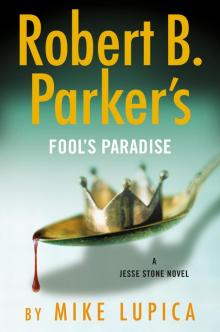 Fool's Paradise
Fool's Paradise Batting Order
Batting Order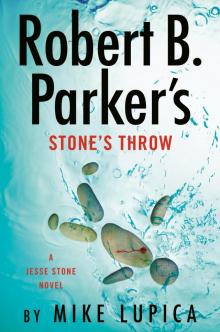 Stone's Throw
Stone's Throw The Lacrosse Mix-Up
The Lacrosse Mix-Up The Hockey Rink Hunt
The Hockey Rink Hunt Payback
Payback Triple Threat
Triple Threat Defending Champ
Defending Champ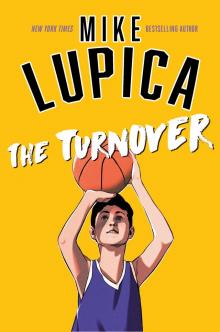 The Turnover
The Turnover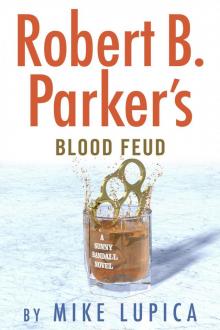 Robert B. Parker's Blood Feud
Robert B. Parker's Blood Feud Strike Zone
Strike Zone Hero
Hero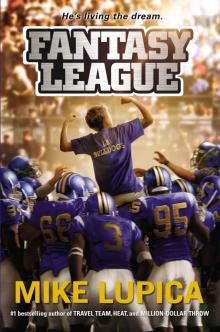 Fantasy League
Fantasy League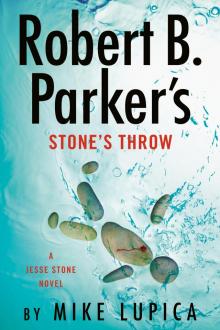 Robert B. Parker's Stone's Throw
Robert B. Parker's Stone's Throw The Big Field
The Big Field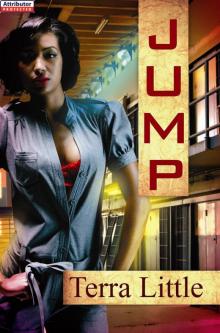 Jump
Jump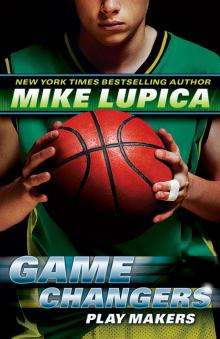 Play Makers
Play Makers The Underdogs
The Underdogs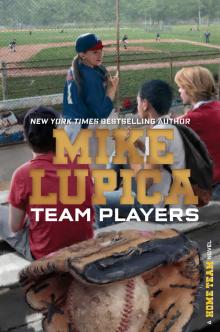 Team Players
Team Players The Half-Court Hero
The Half-Court Hero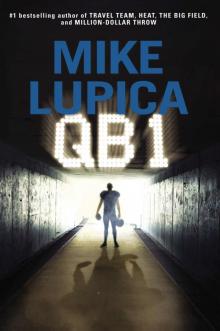 QB 1
QB 1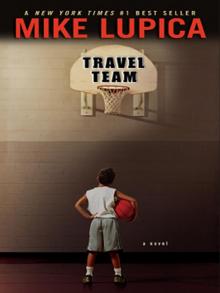 Travel Team
Travel Team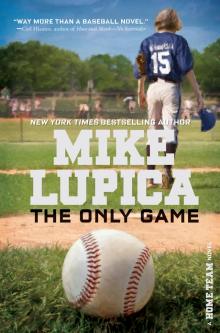 The Only Game
The Only Game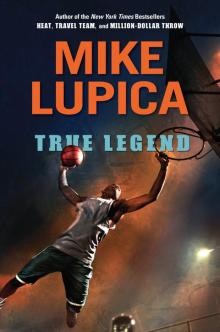 True Legend
True Legend The Batboy
The Batboy Hot Hand
Hot Hand Million-Dollar Throw
Million-Dollar Throw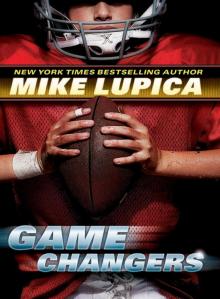 Game Changers
Game Changers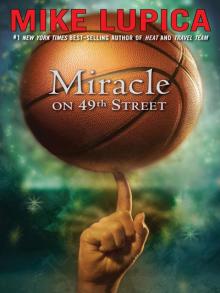 Miracle on 49th Street
Miracle on 49th Street Two-Minute Drill
Two-Minute Drill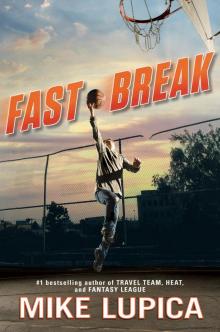 Fast Break
Fast Break The Football Fiasco
The Football Fiasco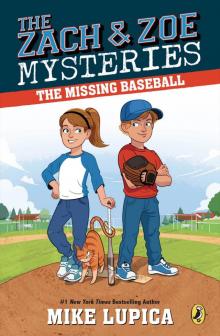 The Missing Baseball
The Missing Baseball No Slam Dunk
No Slam Dunk Heavy Hitters
Heavy Hitters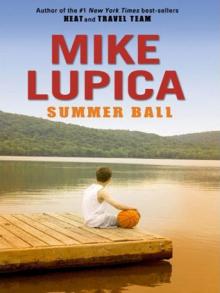 Summer Ball
Summer Ball The Extra Yard
The Extra Yard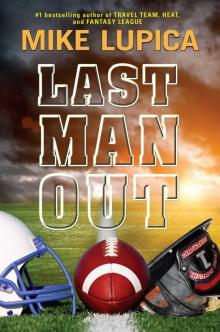 Last Man Out
Last Man Out